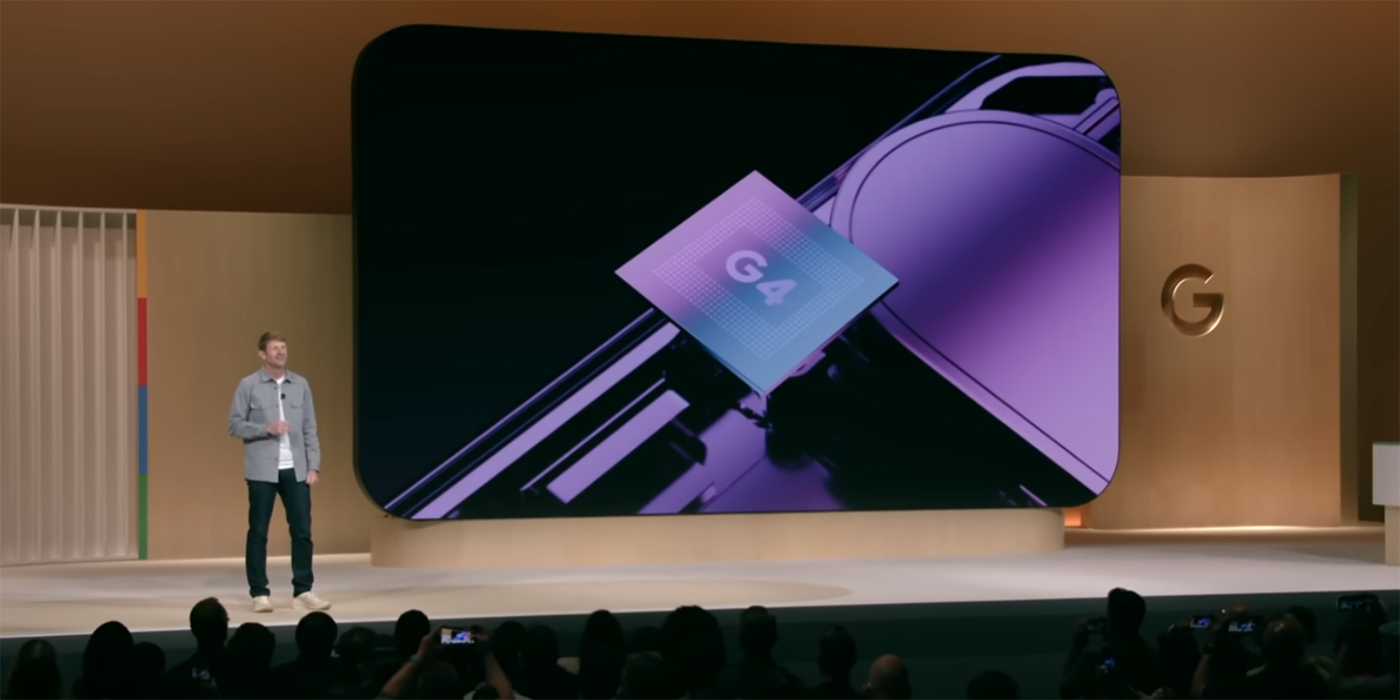
Google’s switch to Tensor chips in the Pixel lineup has been overall pretty good, despite plenty of hiccups, but one of the loudest complaints has been how Google’s chips simply don’t compare when put through a benchmark. That’s not changing with Tensor G4 because Google said it developed the Pixel 9 chip with real-world improvements in mind.
Back in 2021 with the Pixel 6 series, Google ditched Qualcomm’s Snapdragon chips, instead going all-in on its new Tensor chip. The reason Google gave for the switch at the time was that Tensor was custom-made for the company’s goals with Pixel, namely in delivering “AI breakthroughs” and more.
In 2024, that’s never been more of a focus.
Yet, the company’s fourth-gen Tensor chipset still draws scrutiny for many reasons, including that it doesn’t stack up to the latest Snapdragon flagship. Google, as it was in 2021 though, seems content with that, and instead turned its focus on Tensor G4 to real-world improvements to its chip.
During last week’s Made by Google event, the company explained that Tensor G4 was its “fastest and most efficient yet,” adding:
It’s designed to improve everyday use cases, so web browsing, streaming on YouTube, taking a photo, and shooting a video are smoother with less of a hit to your battery.
In an interview with Financial Express, Google’s Soniya Jobanputra relayed that message, saying that Tensor is not being designed for “speeds and feats.”
When we are designing the chip, we’re not designing it for speeds and feats. We’re not designing it to beat some specific benchmark that’s out there. We’re designing it to meet our use cases.
A couple of examples were provided as to how Tensor G4 is improved for the Pixel 9 series.
Firstly, in terms of real-world performance, Jobanputra mentions “a pain point with opening apps,” with Tensor G4 being better optimized for handling multiple tasks at once as well as the efficiency of opening apps.
Beyond that, another core focus was, of course, on AI. Google’s Tensor team worked with DeepMind to optimize Tensor G4 for not just the current state of Gemini Nano, but the “long range” future of the models that may run on device on a Pixel 9 and using that to properly equip the chipset. This apparently includes upping the memory bandwidth. Google also addressed this point during its event, saying that Tensor G4 enables Gemini Nano with multimodal capabilities on Pixel 9, and is also 3x more powerful for on-device AI compared to what’s found in Pixel 8 Pro, with support for processing up to 45 tokens per second.
Another source of improvement is the new Exynos 5400 modem that’s being used in these devices. That modem should be much better regarding pain points such as power efficiency, but also opened the door to Google’s new Satellite SOS feature.
Top comment by Benjamin Haube
I have never understood people's obsession with benchmarks. They are essentially meaningless for ranking real-world performance. It is like ranking every pocket multi-tool based only on the performance of the flathead screwdriver. Designing a great SOC is a lot more than peak CPU performance.
Further specifics for Tensor G4 weren’t discussed in the interview, but Google’s goal is pretty clear, and seemingly unchanged from Tensor’s start – a capable chip that’s optimized for what Google wants to do with the Pixel.
But, all the while, the question of what Tensor G5 will bring hangs over the Pixel 9 generation. It’s been reported that Google is debuting its first fully-custom design next year (even Tensor G4 has a lot of roots in Samsung Exynos) with production moving to TSMC. That change could bring further performance and efficiency improvements, as well as opening the door to Google really doing what it wants with these chips.
Google’s entire Pixel 9 series, all equipped with Tensor G4, is available for pre-order now.
More on Pixel 9:
- Here’s what Pixel 9 devices you said you pre-ordered
- Google’s Satellite SOS is available at launch on Pixel 9 series, how it will work
- Pixel 9 adds a touch of Gemini to the new boot screen [Video]
Follow Ben: Twitter/X, Threads, Bluesky, and Instagram
FTC: We use income earning auto affiliate links. More.


Comments